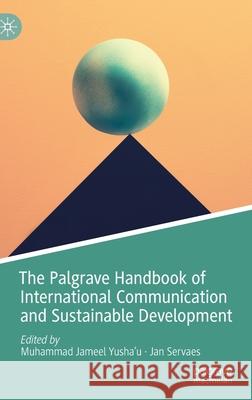The Palgrave Handbook of International Communication and Sustainable Development » książka
topmenu
The Palgrave Handbook of International Communication and Sustainable Development
ISBN-13: 9783030697693 / Angielski / Twarda / 2021 / 635 str.
Kategorie:
Kategorie BISAC:
Wydawca:
Palgrave MacMillan
Język:
Angielski
ISBN-13:
9783030697693
Rok wydania:
2021
Wydanie:
2021
Ilość stron:
635
Waga:
1.10 kg
Wymiary:
23.39 x 15.6 x 3.66
Oprawa:
Twarda
Wolumenów:
01
Dodatkowe informacje:
Wydanie ilustrowane











